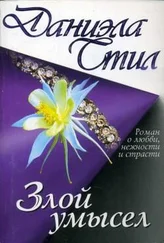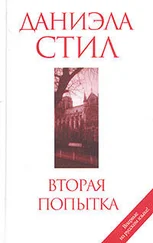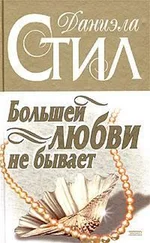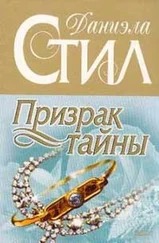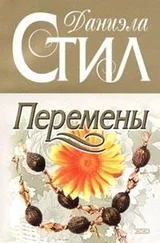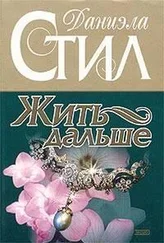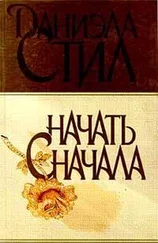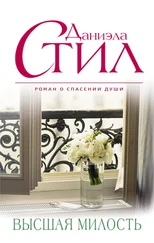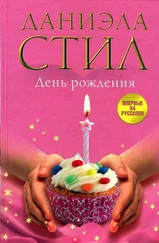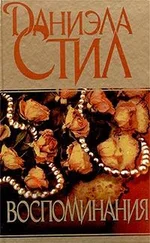“Have you worked here long?” Hattie asked her, trying to sound casual.
“Long enough. Why do you want to know?”
“I’m curious about Saint Blaise’s,” Hattie said, getting right to the point. “A friend of my mother’s adopted a baby here.”
“A lot of people did. Americans mostly. Rich ones, and even some movie stars. Everybody around here knows that. It’s not a secret.” No, but everything else about it was. “You’re American,” she added. “Was your mother’s friend a movie star?”
Hattie smiled at that. “No, but they had money. I understand people paid the Church a fortune for those babies.” As she said it, she could see the librarian bristle.
“Are you a reporter?”
“No, I’m not.” She thought of telling her she was a nun, but decided it was a bad idea.
“Every few years, someone goes on a witch hunt about those adoptions. Ever since that traitor wrote a book about it, and left the Church.”
“There’s a book?” Hattie asked her. The only one she knew of was the one Melissa had mentioned, written by a reporter. But when Hattie had asked her sister about it, she couldn’t remember the author or the title and said she had thrown it away.
“It’s garbage. All lies. Banned by the Church,” the librarian answered. “She was one of the nuns here back then, and then she turned on them. You’re not a Catholic, are you?” she asked Hattie accusingly.
“Yes, I am,” Hattie said simply.
“Then you shouldn’t be snooping around what doesn’t concern you, and happened a long time ago, and trying to vilify the Church. They did a good thing for all those unfortunate, sinful girls, and put the babies in good homes. That’s all that matters. The rest is nobody’s business.”
“What’s the name of the book?” Hattie persisted.
“ Babies for Sale . Catholics aren’t allowed to read it. And a good Catholic wouldn’t want to.”
“Thank you,” Hattie said politely, and walked out of the small library as the woman stared at her angrily.
Hattie walked farther into the village and stopped at a bookstore. A young girl was dusting off the books as Hattie walked in and asked if she had a copy of the book the librarian had mentioned. She wondered if it was out of print. The girl said she’d check in the back, and returned a few minutes later with a dusty copy. She grinned mischievously.
“We’re not supposed to have it. It’s banned by the Church, but the owner likes keeping books like that in the back. I think it’s about some scandal around here.” Hattie paid for it, put it in her purse, and walked back to the convent. She sat in the garden reading it, as younger nuns brought the elderly ones in wheelchairs outdoors to get a little morning sun. Hattie was so engrossed in the book she barely noticed them. The book was written by a woman named Fiona Eckles, and the blurb on the back said that she had questioned her vocation after serving at Saint Blaise’s as a nurse and midwife, and ultimately left the Church. It said she taught literature at Dublin University now. In the photograph, she looked to be in her late sixties, if the photo was recent. The book was only a few years old. It said it had taken her years to write about it. The few pages Hattie read corroborated what her sister had said about Saint Blaise’s and the adoptions that took place there.
Hattie called Dublin information on the cellphone she had rented at the airport. She got Fiona Eckles’s phone number, and left her a message. She was packing her bag when the author called her, and Hattie asked if she could meet with her, about her book. Fiona Eckles hesitated for an instant, and asked if she was a reporter. Hattie said she wasn’t, but that her sister had been at Saint Blaise’s in the late 1980s.
“I was there then, but I doubt if I can provide much information. I delivered the babies, but I was never privy to the records or the names of the adopting parents.” She said she’d had calls like this one before, from women desperate for information about where their babies had gone. “My fellow nuns covered their tracks pretty well. That was part of the deal. Some of the couples who adopted were very well known. We recognized the movie stars, but not the others. It was a booming business for a while. The Church doesn’t want anyone talking about it. If I hadn’t left, they probably would have excommunicated me,” she said with a wry laugh. “I couldn’t stay after what I’d seen.” Hattie wondered if she knew Melissa or would have remembered her. She had brought a photograph of Melissa at sixteen, just in case. She kept several photographs of her and their parents at the convent in New York.
Fiona agreed to meet with her at six o’clock that night, in a hotel lobby in Dublin. After the call, Hattie walked around the convent, to get a better feel of it in the daylight. It was just as grim and depressing as it was at night. She left a note for the mother superior, thanking her for allowing her to stay, with a small donation for the convent. She picked up her bag then, and called for a taxi to take her to the bus terminal. She caught a bus to Dublin, and checked in to a small hotel in time to meet Fiona Eckles at the Harding Hotel for a drink. She couldn’t wait to meet her now and hear what she had to say. She felt mildly guilty for staying at a hotel, but didn’t have time to contact a convent, despite her promise to Mother Elizabeth.
Hattie recognized the woman easily from the photograph on the book. Fiona Eckles had short snowy white hair and bright blue eyes. She had a ready smile and laugh lines around her eyes. She looked like a happy person, not a tortured soul, and like a well-dressed grandmother in a navy linen suit. She had a trim figure. Hattie thought she might be seventy by then, and nothing about her style or demeanor suggested that she’d ever been a nun. She could have been a banker or an executive, and had been a college professor now for many years. She wrote nonfiction, and had published a total of four controversial books, the most recent one about wayward priests. It had been a bestseller. The writing style was simple, clear, and direct.
“I hope I can help you,” Fiona Eckles said kindly when they sat down, “but I doubt I can. I delivered hundreds of babies, maybe a thousand, while I was at Saint Blaise’s. The uncomplicated ones. The high-risk cases went to the hospital, and were seen by a doctor. And I had very little contact with the girls until they were in labor, and I knew nothing at all about the adopting parents, and never met them. Except the movie stars of course. There were a number of those. We all recognized them, and it always provided a buzz around the place when one of them showed up. We knew who they were even when they used false names.”
“My sister was there in 1988,” Hattie said, after their initial introductions, and they each ordered a glass of wine.
“I was there then, delivering babies night and day.”
“My sister calls it a baby mill.”
“She isn’t wrong,” Fiona Eckles said with a small sigh. “In the end, I thought that too. They brought them in, they made them work and go to school, delivered their babies, and charged their parents a hefty fee for keeping the girls there for several months. Then they took their babies, collected a huge fee from the adopting parents, for the Church of course, and sent the girls home two weeks after they delivered as though nothing had happened. No therapy, no counseling, just in the stirrups and out the door, while a lot of money changed hands, from wealthy people who couldn’t have babies of their own. I guess it suited everyone’s needs at the time. But I know from talking to them when they were in labor that a lot of those girls didn’t want to give their babies up, but they had no other choice. Their parents wouldn’t let them come home until they did. One girl went on a hunger strike and nearly died, and refused to sign the papers. She did in the end, though. They all did. It broke my heart to see the look on their faces when we took the babies away minutes after we delivered them. I tried to at least let the girls see them, and hold them when I could get away with it. Our orders were to take the babies away immediately, with no contact between mother and child, after everything they’d been through. We practiced natural childbirth, so there was less liability for us. The adoptive parents were usually waiting in the nursery. That was the end of it for the girls from that point on. They had no contact with their babies, no chance to hold them or say goodbye. It was very traumatic for most of the girls. All of them probably.
Читать дальше
![Даниэла Стил Finding Ashley [calibre] обложка книги](/books/384308/daniela-stil-finding-ashley-calibre-cover.webp)
